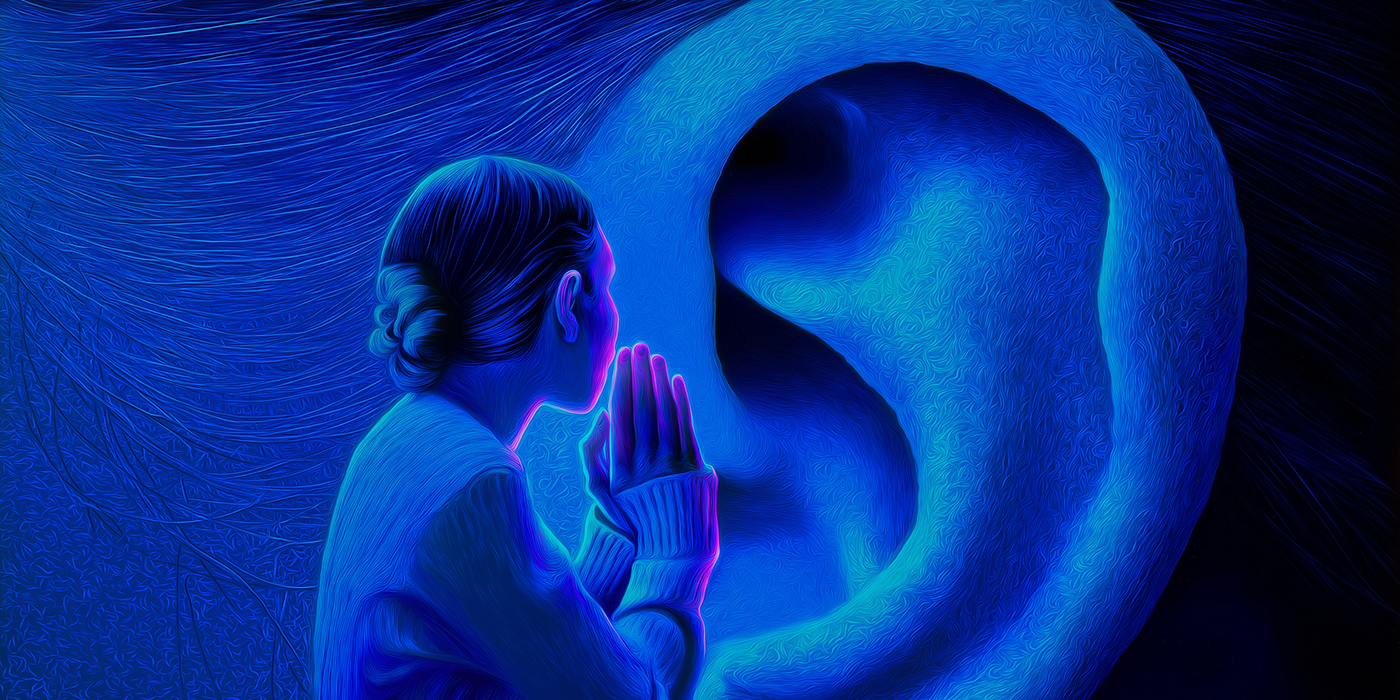
This member’s understanding of God may be unique to him, but he still strives to live our common Twelve Step principles
When I first came into the Program, I had a problem with the italicized qualifier on God, “as we understood Him” (SA, 208). Now I see it as the best idea of the Twelve Steps.
My problem was, being very devout in the religion I was raised in, I was sure that God was God, He didn’t change according to how someone understood Him, and my understanding happened to be the correct one. I had no concept of the Set Aside Prayer or the principle of surrender at that time.
I still believe in the same god, and nothing in the Twelve Steps required that I change my understanding of the nature of God. What I did have to change was my understanding of humility and surrender.
I learned early on that the Twelve Steps are a spiritual program and not a religious one. I’ve come to understand “spiritual program” this way: religion’s role is to teach about the nature of God, while a spiritual program requires humility. Humility requires a power or entity greater than me that I can defer to and surrender to. The concept of a Higher Power became foundational to the Twelve Steps, not to preach the nature of God, but so that I could see myself in juxtaposition with something greater than me. This makes humility possible.
Since the Program “is a plan for a lifetime of daily living” (AA, 317), it teaches qualities that are indispensable to a “happy, joyous, and free” life (AA,133). I believe Steps Two and Three are at the beginning of the Program because nothing else can be learned until humility and surrender are in place. To me, humility also means being teachable. I cannot learn humility or surrender without a greater power to humble myself before or surrender my life to.
I used to bristle at the mention of “as you understand God” or “my Higher Power.” Why? Because I was taught (and still believe) that there’s only one higher power for all human beings, so we can’t all have our own. This is why I like to say “Higher Power” as a proper noun and not “my Higher Power” as if there’s a different entity for each of us. But Higher Power is still teaching me humility, and as I learned in Rick K.’s article on page 14 of this issue, the Program doesn’t require that you surrender to “the greatest power,” just a power greater than you. I no longer bristle when I hear “my Higher Power”* because I want to also welcome the addict whose higher power is the group or the Fellowship. That would clearly be his higher power and not mine.
When I was new in the Program, I was so unwilling to see Higher Power’s perspective that I thought people were being disrespectful in saying “HP” instead of “God.” Hearing it would immediately have me mentally taking their inventory. He’s being lazy and mocking with his abbreviation, and he’s intentionally demeaning my belief in “God.” I was still totally self-absorbed at the time.
The Twelve-Step approach to surrender has helped me better appreciate that HP loves us so unequivocally that He wants everyone (even me!) to find the Solution that SA offers, regardless of whether I know or understand His actual nature yet. What good would it do to force my belief down someone’s throat if he dies in his addiction (dies physically, emotionally, or spiritually) before knowing the “right” God?
I now love the concepts of “as you understand God” and “Higher Power” as a proper noun because they feel unifying to me. This language reflects my understanding that Higher Power wants all of us to be unified as Hindus, Humanists, and Jews, as atheists, agnostics, and New Agers, as addicts who are fearful, angry, or devout. People are different by default. If I want to be unified with others, I must be intentional about it.
Now, I love to hear personal shares that mention various names of deities, concepts, or powers. I still don’t keep it a secret that I worship Jesus Christ. But I usually say “Higher Power” or “HP” in recovery circles because I’m still referring to Him as I believe He is the higher power, and because I want the addict who is still sick to feel comfortable that although his understanding of God doesn’t match mine, we can still focus on our common insanity about lust as what unifies us.
May I continue to set aside what I think I know about God when I’m with other addicts so that we may become more unified in finding the Solution to our problem.
* I don’t capitalize “my higher power” because it’s not a proper noun. I acknowledge that “Higher Power” appears in the Big Book 51 times, and it’s capitalized in every instance but never used as a proper noun. Because I tend to hyper-focus on punctuation and grammar rules, I don’t always use the exact language of the Big Book, but I always try to adhere to its principles. I’m grateful the Program welcomes my personal experience, because I’d hate for anyone to think I’m suggesting that others should adopt my way of applying these principles.
Anonymous, USA






